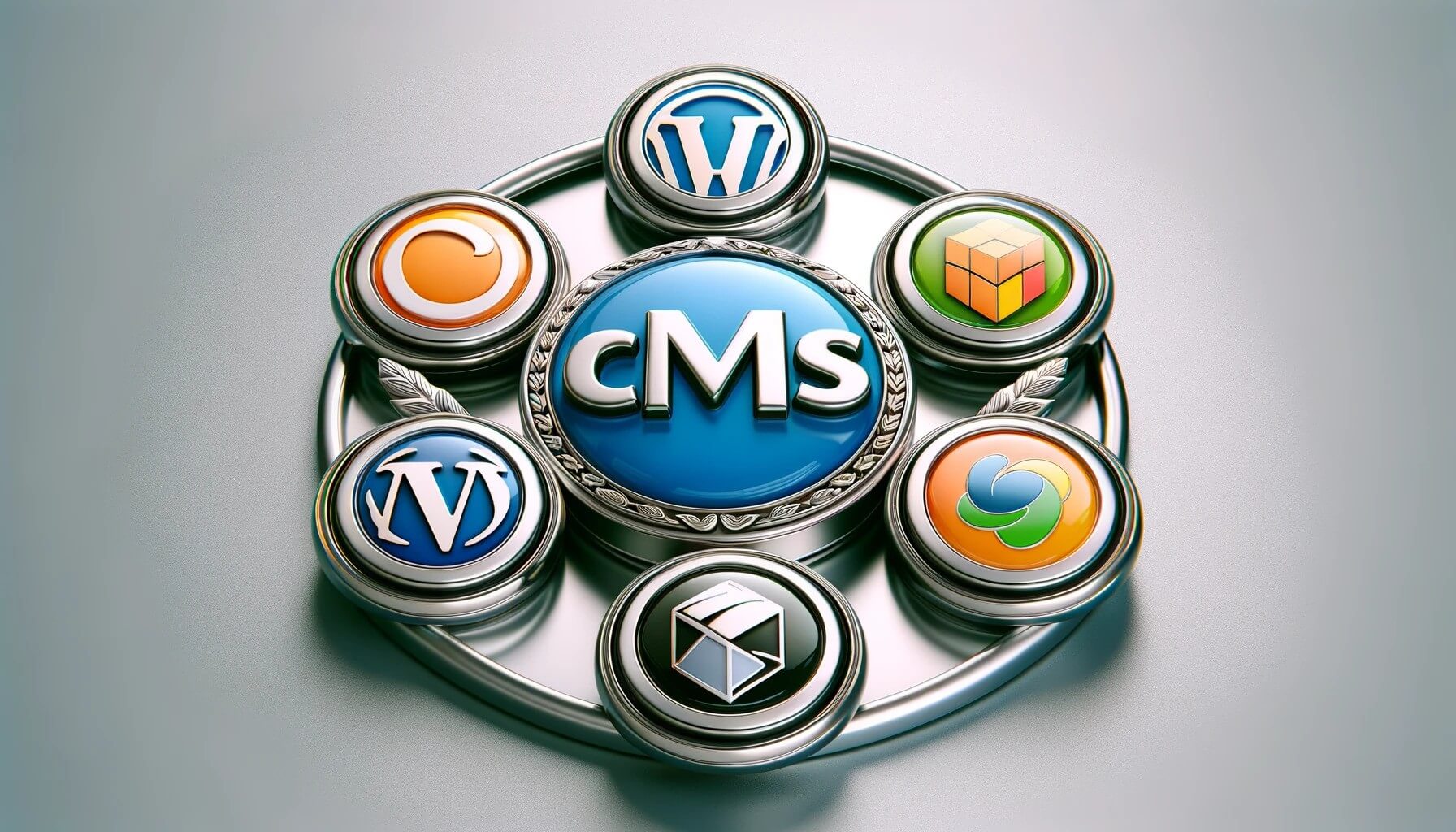Are you looking to create a website but unsure about which Content Management System (CMS) to choose? In this article, we will explore the importance of selecting the right CMS and the factors to consider when making this decision.
We will discuss the different types of CMS available, their pros and cons, and provide tips on how to choose the right CMS for your specific needs. Whether you are a novice or experienced website creator, this article will help you make an informed decision for your next project.
What is a Content Management System (CMS)?
A Content Management System (CMS) is a software application that enables users to create, manage, and modify content on a website without requiring specialized technical skills or knowledge of web design.
CMS plays a crucial role in website management. It provides a user-friendly interface for content creation and editing, streamlining the publishing process, and enabling collaborative workflow.
One of the key impacts of CMS is on user experience. It facilitates the organization of content, optimizes it for search engines, and ensures consistent design and functionality across the site.
The significance of CMS in the digital ecosystem is undeniable. It empowers businesses, bloggers, and organizations to establish an online presence, effectively manage their digital assets, and adapt to evolving web standards. This makes it an essential tool for modern website platforms and hosting services.
Why is Choosing the Right CMS Important?
Choosing the right Content Management System (CMS) is crucial as it directly influences the functionality, user-friendliness, customization options, scalability, security, and integration capabilities of a website.
When choosing a CMS, it’s important to prioritize user-friendly interfaces that enhance the overall user experience. Customizability is also key in creating a unique and engaging online presence. Additionally, selecting a CMS with strong security features is crucial for safeguarding sensitive information and maintaining visitor trust. Long-term scalability is another critical factor to consider, ensuring that the website can adapt and grow with the business’s needs.
Factors to Consider when Choosing a CMS
When choosing a Content Management System (CMS) for your website, it is essential to consider factors such as user-friendliness, customization options, scalability, security features, SEO capabilities, availability of plugins, templates, and themes.
Efficient management of website content relies on several factors, including user-friendliness, customization options, scalability, security features, and availability of diverse plugins, templates, and themes. These factors contribute to a seamless user experience and enhanced search engine visibility.
User-friendliness impacts content creation and updates, while customization options allow for tailoring the website to specific needs. Scalability is crucial for accommodating growth and increased traffic. Security features are essential for protecting the website from cyber threats. The availability of diverse plugins, templates, and themes directly influences the website’s design and functionality, ultimately impacting its SEO performance.
Purpose and Goals of Your Website
The purpose and goals of your website play a pivotal role in determining the most suitable Content Management System (CMS) for your specific requirements and objectives.
When choosing a CMS, it’s important to make sure it aligns with your desired functionality and content structure. This will help effectively convey your message and engage your target audience. By understanding the features and capabilities of different CMS options, you can optimize your website to meet user expectations and achieve your goals.
Integrating relevant keywords into your CMS strategy can also improve your website’s visibility and ensure it resonates with your intended audience. This is crucial for SEO and reaching your target audience effectively.
Ease of Use and User-Friendliness
The ease of use and user-friendliness of a Content Management System (CMS) significantly impact the efficiency and productivity of website management tasks, making it a crucial factor to consider during the selection process.
A user-friendly interface and intuitive functionalities streamline content creation, editing, and overall user experience. These elements enable users to navigate the CMS with ease, reducing the learning curve and saving time.
When managing a website, the ability to quickly create and edit content directly impacts the site’s relevance and engagement. With an efficient CMS, users can focus on producing high-quality content rather than grappling with complicated tools, ultimately enhancing the overall effectiveness of the website.
Available Features and Customization Options
The availability of features and customization options in a Content Management System (CMS) directly influences the presentation, functionality, and uniqueness of a website, making it a key consideration for CMS selection.
The design of a website plays a crucial role in shaping the overall user experience and brand identity. It allows businesses to customize their online presence to reflect their individuality and cater to specific user needs.
With a variety of content management options and unique functionalities, websites can differentiate themselves from the competition. This engages visitors and effectively conveys a distinct message. The customization capabilities also enable the creation of visually appealing layouts, user-friendly interfaces, and targeted content delivery, all contributing to a compelling and unforgettable online presence.
Scalability and Flexibility
Scalability and flexibility are pivotal factors to consider when choosing a Content Management System (CMS) as they determine the adaptability and expansion potential of a website in response to growth and evolving requirements.
An effective CMS should be capable of accommodating future growth, expanding content needs, and adapting to technological advancements without hindering the overall functionality of the website.
This entails the ability to handle increased traffic, seamlessly integrate new features, and support the inclusion of diverse multimedia content. By opting for a scalable and flexible CMS, organizations can ensure that their digital presence remains robust, optimized, and future-proof, reducing the need for significant overhauls or re-implementations as they continue to evolve and expand their online presence.
Cost and Budget
Evaluating the cost and budget implications of a Content Management System (CMS) is crucial in aligning the investment with the overall value and total cost of ownership, ensuring financial sustainability and resource optimization.
Organizations can make informed decisions by carefully assessing the costs, going beyond the initial purchase price. This involves considering implementation, customization, maintenance, and potential upgrades.
Aligning the CMS investment with long-term business goals and scalability helps in future-proofing the system, minimizing unforeseen expenses, and maximizing return on investment. Taking a proactive approach to budget alignment ensures manageable ongoing operational costs and fully optimized benefits of the CMS over time.
Technical Support and Updates
Technical support and regular updates are critical components to consider when choosing a Content Management System (CMS). They ensure ongoing maintenance, security enhancements, and uninterrupted service for the website.
A reliable technical support system provides access to knowledgeable professionals who can promptly address any issues that may arise, safeguarding the website from potential vulnerabilities and ensuring seamless functionality.
Consistent updates not only enhance security measures but also introduce new features and improvements, keeping the website aligned with the latest technological advancements and user expectations. This ongoing maintenance and continuous improvement play a pivotal role in sustaining optimal performance and user experience, making them indispensable factors for any successful website operation.
SEO Friendliness
The SEO friendliness of a Content Management System (CMS) directly impacts the website’s visibility, search engine rankings, and organic traffic acquisition, making it a crucial factor in the CMS selection process.
By incorporating SEO capabilities and optimization features, a CMS can significantly enhance the discoverability of content, improve indexing by search engines, and boost overall website performance.
Effectively integrating relevant keywords and meta descriptions within the CMS empowers the website to attract targeted organic traffic and align with search engine algorithms, ultimately contributing to a strong online presence and increased user engagement.
Security and Data Protection
Security and data protection are paramount considerations when selecting a Content Management System (CMS) to safeguard confidential information, user privacy, and the overall cybersecurity posture of a website.
CMS plays a crucial role in mitigating cyber threats by preventing unauthorized access to sensitive data and maintaining the integrity of stored information. This contributes to building trust with website visitors and users, ensuring their personal information is well-protected.
To uphold the highest standards of data privacy and cybersecurity, it is essential to implement robust security measures such as encryption, access controls, and regular security updates within the CMS.
Integrations and Compatibility
The compatibility and integrations offered by a Content Management System (CMS) significantly impact the seamless incorporation of third-party tools, extensions, and functionalities, enhancing the overall website performance and capabilities.
This capability enables a CMS to adapt to evolving technology trends and easily integrate with various solutions, such as e-commerce platforms, marketing automation tools, and customer relationship management systems.
By ensuring smooth compatibility with these third-party applications, a CMS expands its functionality, empowering website owners to create a rich, integrated digital experience for their users. Seamless integrations and extended capabilities enable website administrators to efficiently manage content, streamline workflows, and deliver personalized experiences, thus contributing to heightened user satisfaction and engagement.
Types of CMS and Their Pros and Cons
There are various types of Content Management Systems (CMS) available, each with its own set of advantages and disadvantages, catering to diverse website requirements and operational preferences.
WordPress, one of the most popular CMS platforms, stands out for its user-friendliness and vast selection of customizable themes and plugins. This makes it a top choice for blogging and small to medium-sized websites. However, due to its widespread usage, it may require frequent updates and security precautions.
On the other hand, Drupal offers robust security and scalability, making it suitable for complex, enterprise-level websites. However, it may have a steeper learning curve and require more technical expertise for customization.
Meanwhile, Joomla strikes a balance between the two, providing flexibility and easy maintenance. However, it may not offer as extensive a range of extensions as WordPress.
Ultimately, the best CMS for a project depends on specific requirements and objectives. Each type has its own strengths and challenges, so careful consideration is necessary for optimal results.
Self-Hosted CMS
Self-hosted CMS solutions offer extensive control, customization, and autonomy over website management and data hosting, providing a robust platform for tailored content delivery and operational flexibility.
Self-hosted CMS solutions offer users complete ownership of their data and infrastructure, allowing for intricate modifications and enhancements tailored to their specific needs.
The ability to integrate third-party tools and plugins further enriches the functionality and adaptability of these systems, empowering businesses to create unique online experiences.
With independence from third-party hosting services and subscription fees, self-hosted CMS solutions are a cost-effective option for organizations seeking full control over their digital presence.
Cloud-Based CMS
Cloud-based CMS platforms offer unparalleled flexibility, accessibility, and scalability, leveraging cloud infrastructure for seamless content management, collaborative workflows, and dynamic resource allocation.
Cloud-based content management systems (CMS) allow organizations to access and update content from anywhere, promoting real-time collaboration and streamlining remote work. This eliminates the need for extensive hardware investment, as companies can easily scale their content operations to meet growing demands.
These solutions also offer advanced security measures and automated updates, ensuring data integrity and reducing maintenance efforts. By harnessing the power of the cloud, businesses can achieve operational efficiencies and cost savings while empowering their teams to work more effectively.
Open-Source CMS
Open-source CMS platforms are driven by collaborative communities and offer extensive flexibility, customization, and adaptability, empowering users with versatile content management and development opportunities.
Open-source CMS platforms allow users to access a wide range of knowledge and skills from a diverse community, leading to continuous improvements and innovative solutions.
These platforms offer a plethora of customizable themes, plugins, and extensions, allowing individuals and organizations to tailor their websites or applications to their specific needs.
The collaborative nature of open-source CMS fosters a supportive environment where users can seek assistance, share insights, and contribute back to the community through their developments, enriching the collective experience.
Proprietary CMS
Proprietary CMS solutions offer unique and exclusive features tailored to specific business needs. This includes specialized functionalities, dedicated support, and proprietary development frameworks.
These solutions are designed to seamlessly integrate with various business applications and provide comprehensive control over content management. This includes dedicated support teams that ensure quick resolutions to any issues that may arise, offering peace of mind to businesses.
The tailored development frameworks of these solutions allow for customization according to the unique requirements of each organization, resulting in a highly personalized and efficient content management system.
How to Choose the Right CMS for Your Needs?
Selecting the right Content Management System (CMS) for your specific needs involves evaluating factors such as website requirements, platform compatibility, integration capabilities, and user experience considerations.
This process requires a comprehensive understanding of your website’s content demands, the level of customization needed, and the ability of the CMS to support these demands.
It’s essential to align the CMS capabilities with your website’s unique features and your business goals to ensure a seamless integration. By considering user-centric design elements, you can create an optimal user experience, allowing visitors to engage with the content effectively.
Customized solutions play a crucial role in providing a user-friendly experience, ultimately leading to a successful website presence.
Frequently Asked Questions
What is a content management system (CMS) and why do I need one?
A content management system is a software platform that helps to create, manage, and publish digital content. It is essential for businesses to have a CMS as it makes it easier to update and maintain their website’s content without needing technical knowledge.
What are the key factors to consider when choosing a CMS?
There are several factors to consider when selecting a CMS, such as the platform’s flexibility, user-friendliness, features, security, scalability, and cost. You should also assess your business needs and goals to find the most suitable CMS for your organization.
How do I determine which CMS is best for my business?
To choose the right CMS for your business, you must first identify your website’s purpose, target audience, and the type of content you will be publishing. You should also consider your team’s technical abilities and the level of customization and support you require.
What are the different types of CMS available?
There are three main types of CMS: open-source, proprietary, and SaaS. Open-source CMS, such as WordPress and Drupal, are free and offer a high level of customization. Proprietary CMS, like Adobe Experience Manager, require a license and are more customizable. SaaS CMS, such as Wix and Squarespace, are user-friendly but offer limited customization options.
Can I switch to a different CMS in the future?
Yes, it is possible to switch to a different CMS in the future. However, depending on the complexity of your current CMS and the amount of content, the process can be challenging and time-consuming. It is best to research and carefully choose a CMS that meets your current and future needs to avoid having to switch platforms.
Do I need technical skills to use a CMS?
It depends on the CMS you choose. Some platforms, like WordPress, have a user-friendly interface that requires little to no technical skills. However, others, like Drupal, may require more technical knowledge to customize and manage the website effectively. It is essential to consider your team’s abilities and the level of technical support available when selecting a CMS.





